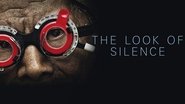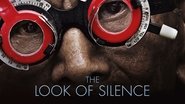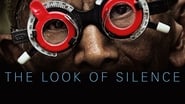GurlyIamBeach
Instant Favorite.
Noutions
Good movie, but best of all time? Hardly . . .
Jonah Abbott
There's no way I can possibly love it entirely but I just think its ridiculously bad, but enjoyable at the same time.
Mathilde the Guild
Although I seem to have had higher expectations than I thought, the movie is super entertaining.
rblenheim
The 2012 Oscar-nominated documentary, "The Act of Killing", garnered world-wide praise and many awards for its shocking look into the current lives of the perpetrators of genocide in Indonesia during the mid-sixties. Its filmmaker was Texas-born verified genius Joshua Oppenheimer who lives in Denmark and has been making films since 1998. "The Look of Silence" is its companion piece, and where the earlier documentary was outwardly horrifying, this one is more quietly disturbing and, I believe, the more important.After my viewing of it finished at 7 a.m., I was lowering myself into a warm bathtub when suddenly I became haunted by the feeling that headless bodies were floating past me as if I were in the Snake River where the corpses had been dumped. Indeed, I couldn't put the film out of my head the rest of the day, and haven't since. The film follows an Indonesian man named Adi Runkun whose brother had been brutally murdered in the 1965 purge of 'communists' as he confronts, in the present day and under the pretext of dispensing eye exams, the men who had carried out the killings (and who had boasted and joked about the carnage in "The Act of Killing"). We also see Adi's humane care-taking of his nearly dead father whom he bathes and consoles, and other family members who have had to live among his brother's murderers for decades. What makes this film so effective is how Adi refuses to display any emotion at the killers while the director continues to portray them as human beings rather than monsters (no revenge film this), but Adi's silent stare keeps burning into their souls as they squirm uncomfortably, stubbornly offering lame excuses while refusing any expressions of regret. By this method Oppenheimer makes the film much more of an iconic document of man's inhumanity to man, forcing viewers to contemplate parallels in history, most especially the Nazis who perpetrated the Holocaust in Hitler's Germany.There is nothing easy about this film, yet it is one of the few films you must not miss if you have a heart that pumps blood.
peefyn
The Look of Silence is such a brilliant title for this movie. For one, it's a good description of Adi's reaction when hearing about the murder of his brother. (And it's oddly fitting that he is an optometrist). It's also a description of the response they get from the perpetrators, refusing to show any guilt or remorse, preferring to pretend that it never happened. And that seems to be what Oppenheimer is tapping into in Indonesia, the look of silence, and what really lies behind it.This is definitely a companion piece to the previous "Act of Killing". Not because it does not stand on its own, which it does, but because they stand so much stronger together. Each documentary has an unique perspective on some mutual themes. Especially guilt and remorse.It's amazing how it all comes together in a movie like this. Oppenheimer must have done a lot of work for this. Adi is such a good subject for a documentary like this, and having him being willing to explore this dark side of his nation's history, and openly talk to the people who brutally murdered his brother - it's such an unique way to explore all of this. And Adi does a really good job with it all.
Sledge Hammer
This documentary is first of all, the visceral fermentation of a man that can withhold and suppress any retributive feeling, with almost zen-like attitude, while his eyes humidify with utter contempt as he stares into the face and gestures of his brother killers gone old ... and doing quite well. Directly or indirectly, he's just formulating the questions that in most cases seem nonsensical to the perpetrators of the mass killings that took place in the 60' Indonesia. The real tragedy unfolds as the footage unveils fully towards the end, because u realise that there is no action that Adi, or any of us could take, except forgiveness, against people that never even formulated in their own language, the concept of morality. It's like looking at some grumpy old man talking about a high-school "beef", back in the days, with the "commies", that ended a bit sour ... Except the sourness of that "beef" is counted in the slaughter of human lives, that never got redeemed, apologized for, or felt any regret about them. It's not even really about religious or political indoctrination, but definitely it's a documentary about the versatile human nature that set's us apart so much one from another, to the extent where one can legitimately ask : Ar we even belonging to the same species? Endure, all you that feel compassionate about the world.
MortalKombatFan1
"The Look of Silence" is a companion piece to Joshua Oppenheimer's previous film "The Act of Killing". Both films deal with the mass murder of communists in Indonesia between 1965 and 1966 - a serious crime resulting in the deaths of over a million innocent people by the hands of hired militia sanctioned by the government, but has gone unnoticed in the public eye for so long because the perpetrators are still at large, hailed as national heroes for stopping a revolution and in positions of power in government for over fifty years, living peacefully among the families of those they murdered."Act of Killing" is more audacious in style, following three killers as they recreate their murders for film in any genre they want (gangster flick, musical, etc.) - all the while they're boastful of their accomplishments, without any remorse or regret for their actions.'This film follows Adi Rukun, an optometrist who's brother was murdered in the genocide. We see him confronting death squad leaders and those who knew his brother, looking for some sort of understanding and possibly reconciliation for his murder. There are also domestic scenes with his mother and father, as well as with his wife and family. Life plays out happily before our eyes, but beneath it there are still painful reminders of the past when Adi talks about his brother with his mother, or when he tells his wife what he's been up to, talking with these killers they know. She says she would have stopped him if she knew, that his life could be in danger if he keeps digging up the past instead of forgetting. This gives the interviews a very real sense of tension, and you wonder if such a film could be made if it weren't for the involvement of outsiders who could be there with Adi.Still, Adi puts up a strong front, asking why they did what they did. The answer's usually the same, they deny individual responsibility, or say that it was necessary. Sometimes their answers are disturbing, saying that they drank the blood of their victims to stay sane. Family members of the now-deceased murderer of his brother deny knowing anything about their father's work. In a very affecting scene, Adi's uncle, a prison guard in the army says he was unaware what happened to the detained after they were shipped off onto trucks each day. He's trying to keep up a strong resolve, but you can see the pain in his face when he talks about the past.This film director chooses not to intrude on the telling of the stories with narration, but instead lets the interviewees tell their version of events, leaving pregnant pauses between answers to linger on their faces, which often tell more than spoken words ever could.It's a very quite, slow film, but I found it hypnotic and a damning portrait of a country's silence after horrendous acts were committed. Adi gives a voice to the families of many victims, and both films should be watched by everyone to get a better understanding of the depths humanity can sink to, and how a nation struggles to cope with long dormant pain after government sanctioned genocide.





